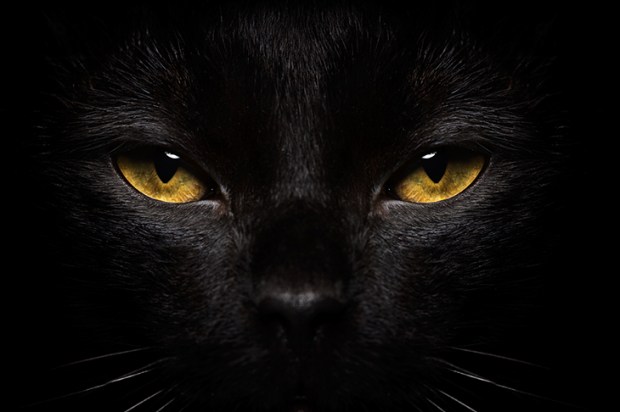Here’s a quick quiz to jolly up your Easter. 1. Lucy Noble, artistic director of the Royal Albert Hall, thinks ‘white male titans’ such as Mozart, Beethoven and Bach are putting the young off classical music. Is she:
a) Quite right! My kids would be gagging to go to the Royal Albert Hall if only its programmes included more black female/transgender composers they’d never heard of.
b) Strangling yet another great institution. Audiences are drawn by artistic excellence, not diversity box-ticking.
Cambridgeshire Fire and Rescue Service says: ‘There is a historical need to diversify our workforce. The number of women operational staff has been under 5 per cent and black and ethnic minority people are under-represented in all parts of the service. The proportion of staff who identify as gay is also negligible.’ Is your response:
a) Any organisation that serves the community must represent that community on proportionate gender/race/sexuality lines.
b) I don’t care who drags me out of a burning building so long as he’s strong, fit and brave.
If your answers are both As, many congrats! You are fully culture-compliant.
If your answers are both Bs — basically you’re stuffed. But it might help you to understand what’s going on if you read Ben Cobley’s The Tribe.
‘The Tribe’ is Cobley’s name for the dominant cultural in-group which has gained power, influence and the aura of moral authority by deciding that the world must be ranked according to a hierarchy of victimhood. At the very top of this league table — gold medal winners in the Oppression Olympics — would be, perhaps, a black, disabled, transgender, lesbian Muslim; at the bottom, most definitely a white straight male.
Cobley is not, as you might expect, a gammon-faced right-winger, but an ex-Labour activist aghast at the way his party has abandoned the cause of workers’ rights and instead embraced the divisive, intolerant, specious — and quintessentially university-educated middle class — ‘system of diversity’. This ‘system of diversity’ likes to parade its virtue with friendly sounding words such as ‘equality’, ‘tolerance’ and ‘inclusion’. But its invariable outcome is misery, bitterness, injustice — and a hierarchy of privilege even more toxic, unfair and heavily rigged than the traditional one it has largely replaced.
It helped foster, for example, that conspiracy of silence surrounding the rape gangs which for decades were able to groom and sexually abuse thousands of often underage girls across Britain with impunity. Why? Because the girls were mostly white and the perpetrators mostly brown and Muslim. And because according to the new prevailing cultural orthodoxy, de facto if not de jure, rape is now a less heinous crime than racism or ‘Islamophobia’.
And it leads, almost inevitably, to such bizarre inversions of common sense as the examples from my quiz: the artistic director for whom artistic excellence is now almost an afterthought; the fire department that values ‘diversity’ above operational efficiency; or indeed, the recent example of the race-baiting politician who managed to stretch the definition of ‘Nazi’ to mean ‘an MP who wishes to honour the democratic result of a referendum, come what may’ — and was actually applauded for it by a number of white liberal commentators.
Cobley is especially illuminating on Brexit and the reason for the disproportionate amount of hatred directed by Remainers towards Leavers. (Leavers, polling by YouGov has shown, tend to be more tolerant towards their opponents.) It comes down to the way Leavers have been successfully branded by Remainer propagandists as ill-educated, racist bigots too gullible and stupid to understand what they voted for — but culpable all the same. This in turn stems from the way that the Remainer Weltanschauung has become inextricably bound with a view of immigration as a force for good. Left-leaning Remainers have persuaded themselves that the enriching power of ‘diversity’ means strength; right-leaning Remainers have concocted their own plausible line about cheap, eager, imported labour being good for the economy.
These notions coalesce in a statement made by Lord Kerr, the civil servant who devised the EU’s Article 50 mechanism: ‘We native Brits are so bloody stupid that we need an injection of intelligent people, young people from outside who come in and wake us up from time to time.’
Remainers have conflated ‘immigration as a phenomenon and migrants as a class of people’ with all the things they value and see themselves as embodying. These, in Cobley’s wickedly acerbic analysis, include: youth, optimism, aspiration, high educational attainment, productivity, good looks, entrepreneurship, work ethic, co-operation, tolerance, knowledge, connectivity, wealth, modernity, success, internationalism, London, top-ranking universities, the romance of Scottish and Irish nationalism, the future, peace and also Europe as a shared space. No wonder they so despise Brexiteers who, it goes almost without saying, can claim not one of these virtues or associations.
But why would anyone want to belong to this tribe of smug, arrogant, politically correct bigots? Because, Cobley shows, the entry requirements are so undemanding: all you have to do is make the right noises now and then, like Channel 4 news presenter Jon Snow did during a report from a pro-Brexit rally when he commented on the whiteness of the crowd. And because the consequences of exclusion — from social ostracism to job loss — are potentially so great.
For those of us who do wish to stand firm, though, Cobley has some words of consolation from his fellow left-wing thinker Chantal Mouffe, who quotes French philosopher François Flahault: ‘In our utilitarian and rationalist age, this mode of self-idealisation is what is left for people to escape from their own mediocrity, cast evil outside themselves and rediscover some form of heroism.’ Amen, sister!
Got something to add? Join the discussion and comment below.
Get 10 issues for just $10
Subscribe to The Spectator Australia today for the next 10 magazine issues, plus full online access, for just $10.
You might disagree with half of it, but you’ll enjoy reading all of it. Try your first month for free, then just $2 a week for the remainder of your first year.















Comments
Don't miss out
Join the conversation with other Spectator Australia readers. Subscribe to leave a comment.
SUBSCRIBEAlready a subscriber? Log in